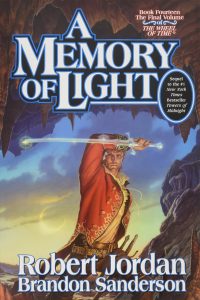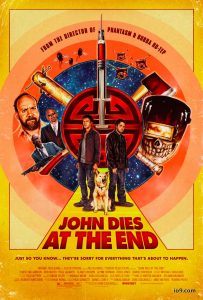I have previously pointed out that the current Ultimates run has been turning the dial to 11, and I think that has been true of the Ultimate series[1] in general since pretty much Magneto’s Ultimatum and on forward. Even the most laid-back of the current storylines, surrounding Spider-Man, has had a major character death in the not-too-distant past. Meanwhile, this particular episode has reached a conclusion of sorts, although not without multiple devastating nuclear strikes and a more-divergent-than-usual final outcome. And I’ll admit, however much I may have complained that the Ultimate line is working a little too hard to achieve the appearance of a full-throttle, all stories have major consequences! approach to things, it is nice to not be familiar with what’s coming next like I used to be during the first decade of that run.
As far as the current conclusion, I’m hopeful that something useful will finally be made of the main villain, whose identity I have been trying to keep quiet over the last few reviews; as things stand currently, all I have is a question mark about whether I’m expected to believe his beef with humanity (and the Ultimates in particular) is as straight-forward as it seems[2] and a smaller question mark as to what precisely occurred in his final scene of the book. Also, Tony Stark? Still cool.
[1] There is a definite downside, Marvel of ten years ago, in having one letter to distinguish between your current world-building / imprint and a team of heroes that reside within that world. I’m a little amazed I haven’t complained about this before.
[2] Because yes, I will be extremely disappointed if the most powerful Ultimate Comics villain since Galactus is only a villain because he was feeling butt-hurt and didn’t get over himself. That right there is a massive character shift with no provided explanation. (Ironically, if this were regular Marvel, I would completely believe it. That guy has always been a dick.)
 For the past twenty years, which it to say, about as long as it takes to grow a human, I have been reading the Wheel of Time. For the past nine months, which is to say, about as long as it takes to gestate a human, I have been reading nothing except[1] the Wheel of Time. As of sometime shortly after I finish this review, those days have ended, I guess. It’s pretty hard to think past that, so far.
For the past twenty years, which it to say, about as long as it takes to grow a human, I have been reading the Wheel of Time. For the past nine months, which is to say, about as long as it takes to gestate a human, I have been reading nothing except[1] the Wheel of Time. As of sometime shortly after I finish this review, those days have ended, I guess. It’s pretty hard to think past that, so far. You guys. I am so embarrassed about this right now, and it’s going to be probably the worst review ever, but… I’m like four reviews behind, and at this point I can no longer separate out
You guys. I am so embarrassed about this right now, and it’s going to be probably the worst review ever, but… I’m like four reviews behind, and at this point I can no longer separate out